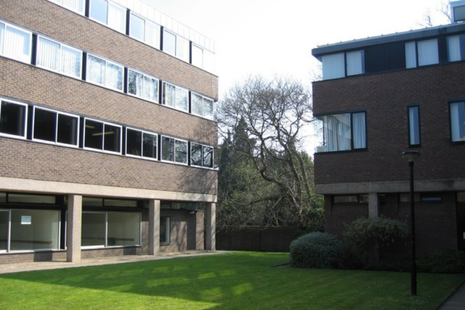AMES Faculty accused of ‘toxicity’ as dropout and transfer rates remain high
Around one quarter of AMES students have dropped out or transferred degree since 2013 due to unmanageable workloads and poor mental health

Cambridge’s Faculty of Asian and Middle Eastern Studies (AMES) has come under fire following allegations of an unsupportive and toxic work environment that has negatively impacted students’ experiences and mental health at the University.
Students have told Varsity that despite flagging their concerns to the Faculty, “there is no effort from the department to change their degree structure on a widespread level”.
Varsity found that in recent years, around a quarter of students either dropped out or transferred out of AMES degrees in the years after their matriculation, with a peak of two-fifths of students dropping out or transferring out for those who matriculated in 2017.
A Varsity Freedom of Information request revealed that these students were most likely to drop out or transfer out of AMES degrees in their second year, with 38% of these students doing so then. The most popular degree AMES students transferred to was HSPS, the choice of almost a quarter of those who have transferred since 2013.
Students criticised the fact that AMES undergraduate courses are advertised as beginners’ courses, despite first year lessons relying on prior knowledge and experience in the languages taught.
One student told Varsity: “Whilst being open to people who have never studied the languages before, the faculty, perhaps without realising, seems to rely quite heavily on people already having a decent foundation in either the language, fast enough new language acquisition, and/or an understanding of grammar to a degree that is certainly not taught in an UK school.”
Students recognised that individual language teachers are usually “very supportive”. However, students have also noticed massive disparities in the quality of AMES teaching: “You either get lucky with your teachers/the lecturers you have on your options, or you get it rough,” one said.
At a faculty level, students described the work culture as “out of hand” and the workload expected of students as “undoable”.
The AMES Faculty was described by one student as “diminishing students’ self-worth by claiming a moral high ground because teachers and professors take, or claim to take, a 60-hour work week, so [the students feel they] should also do it”.
Another student explained that, in their first year, they were “expected to do a medic’s level workload,” of more than fifty hours a week.
Some have found this to be confusing when compared to the workload of Modern and Medieval Languages (MML) students: “There’s never really been clarity on why our workload is so much higher than that of MML, whose students study two languages to our one.”
Students acknowledged that the AMES tripos is a difficult course, but that the Faculty “refuses to accept that a lot of [the] issues are faculty related”.
A student explained: “If [a] cohort [does] not [perform] well, to my knowledge, the reflection is rarely put on the faculty structure in general and how the degree is organised, but rather the capabilities of the student themselves.”
Multiple students told Varsity that the AMES Faculty has ignored their complaints, stating that the Faculty’s general attitude is: “We know this is something students have issues with every year, but this is how the department is run so we won’t be changing it.”
One student told Varsity that almost half of their Chinese class left the course in first year, which they believe “shows a stunning ignorance to their issues or a stubbornness to change” on AMES’s part. Another student even alleged that the Faculty’s “sense of pride” over “the difficulty of the course […] makes the high dropout rate more of a positive than a negative to them in some ways.”
One student, who was physically unable to attend lectures in person, highlighted the Faculty’s approach to attendance. Despite explaining their situation to the Faculty, and asking whether they could instead attend over Zoom or be provided lecture recordings, the department still refused to make any adjustments.
The student told Varsity: “If you miss a single lecture in AMES they will come for you,” even believing that “[the teachers] will treat you worse if you don’t show up for whatever reason.” Consequently, the student was forced to make their own adjustments to attend in person, despite their extenuating circumstances “because I just couldn’t get any support” from the Faculty.
“I’m glad I’m out – I’m doing better now and I am never going back to AMES because that was just not the best experience personally,” they added.
Students also alleged a disregard for mental health within the Faculty: “Mental health in general doesn’t seem to be properly understood by most faculty members, and it makes it so that they can often be an obstacle to struggling students rather than a source of support.”
One student described their final year studying Japanese: “I did get quite severe depression throughout my Lent and Easter terms […] I wasn’t really able to leave my room or go to my lectures and at that point I think the Faculty just completely gave up on me”.
The student expressed how this actually provided them with relief “because [the Faculty] left me alone for the first time ever”.
Multiple students share the belief that because AMES is a relatively small faculty, teacher’s perception of students can result in biased teaching and antagonising students.
One student said: “I’ve seen grudges get quite personal (both ways) and every time it has been to the detriment to both parties, but of course particularly to the student, whose mental health and productivity inevitably suffer.”
“Such cases often lead to intermissions, dropouts, or switching course (if they are lucky enough to do so), and rarely do they resolve otherwise,” they continued.
“The AMES department needs to seriously consider whether they can honestly say they’re providing the world-class education/degree that Cambridge is supposed to offer, and if I was the university, I would be wondering what’s wrong with the faculty to have such high dropout rates, rather than pushing the issue to the side and onto the students,” the student added.
Professor Christine van Ruymbeke, the Co-Chair of the AMES Faculty, told Varsity: “We take the wellbeing of students very seriously and work to ensure they study in an environment in which they feel supported. There are several channels available for students to seek support, voice concerns or submit a complaint and we strongly encourage all students to take these up where needed. Within the Faculty students can speak to their course’s Undergraduate Coordinator or a Faculty Co-Chair, alternatively within College they can speak to their Director of Studies or Senior Tutor. The University also offers a Student Complaint Procedure, as well as a range of Student Support services including academic support and counselling.”
 News / Caius mourns its tree-mendous loss23 December 2025
News / Caius mourns its tree-mendous loss23 December 2025 News / Clare Hall spent over £500k opposing busway 24 December 2025
News / Clare Hall spent over £500k opposing busway 24 December 2025 Comment / The ‘class’ of Cambridge24 December 2025
Comment / The ‘class’ of Cambridge24 December 2025 Interviews / Politics, your own way: Tilly Middlehurst on speaking out21 December 2025
Interviews / Politics, your own way: Tilly Middlehurst on speaking out21 December 2025 Comment / Yes, I’m brown – but I have more important things to say22 December 2025
Comment / Yes, I’m brown – but I have more important things to say22 December 2025








